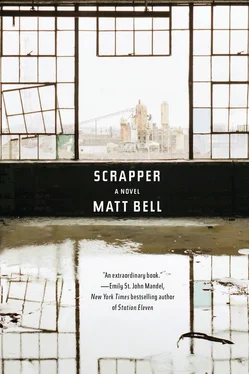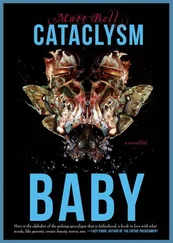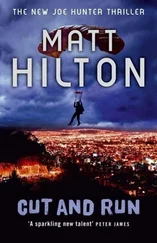She worked as an emergency dispatcher but he hadn’t known the first night, hadn’t asked, had only learned her name beyond the point of further questions. Jackie. When she revealed her profession she said she’d just wanted a job, hadn’t meant to get so close to the unfolding tragedy. She laughed before he knew he was supposed to. It was a cynical view, and sure, she said, she never saw the endings of things. All she had was the prologue, the in medias res, the confusion amid the disaster.
Panic sets in, she said. People lose their heads. It’s my job not to lose mine.
When she laughed he could see more of her teeth than when she didn’t. Her teeth weren’t perfect but what did it matter. Her name was Jackie but her name wasn’t what he thought when he saw her. He didn’t tell her what he called her in his head.
On the big screen the game unfolded and the crowd in the bar erupted whenever there was a goal scored or a fight started. Between highlights she told him about her week and this week was the week a teenager burbled into the telephone for three minutes after his grandmother shot him in the chest.
This was the week a mother miscarried in the checkout line, squatting over the linoleum, crying and screaming and surrounded by strangers, all bonded by the intimacy of her disaster.
This was the week a toddler drank drain cleaner and this was the week Jackie didn’t know if she’d ever know if the toddler was alive or dead.
Despite her week she smiled more than he did and he didn’t know why. She touched his arm across the table and she said if she was sure a caller was passing then she never hung up, not before the paramedics arrived. She didn’t want anyone to be alone when they died. It mattered to her even after it couldn’t matter to them. He bought her a beer and himself a beer he couldn’t afford. Even after the game went bad for the home team he thought his face might hurt from happiness in the morning. Joy’s spreading warmth, starting low and swelling fast. How long had it been since he’d lived this close to its hum.
They met for coffee, drinks, lunch, made the expected small talk. She told him more about her work, her week, about new car crashes, heart attacks, domestic violence. She asked him about his days too but he didn’t know what he wanted to tell her. The work was a series of repetitive motions. There were surprises but all of a kind. Before he met her, he had been training himself to feel less about everything and now he gave her the unadorned actions, without explanation or inflection, what sights he saw in the zone’s abandoned places: A busted flip-flop found in an alley, its imagined implications like at the scene of a crime. A bird he couldn’t save, trapped in a crumbling chimney. A house whose roof had fallen in, seedlings growing where the living room turned to moss. Because after you broke the shell of the house who knew what might come next.
He said, I never imagined how hard we worked to keep the world out, to stop its taking back the places we’d claimed.
There were streets with every business barred and nearly every house vacated and still there could be a shamble of people shuffling the sidewalks. He required an enormous vocabulary for describing degrees of distance, a vocabulary he didn’t possess. He called a lot of parts of the zone empty or abandoned or derelict but those words never meant there was no one there.
He said, I saw a child hollering in a front yard yesterday, in a block I thought was vacant. A boy, eleven or twelve. The child alone, shirtless, his skin glistened with sweat, sunshine. It was fall but the year had a few warm days left.
He told her this but what he told her wasn’t a story. It was something he’d seen, not something he’d done. He was merely a spectator, didn’t want to paint the image tainted by his action or inaction, didn’t want the responsibility of cause and effect.
There’s this creeping kind of fatigue, he said. If he thought harder about what he heard and saw from his apartment he didn’t think he could live there. The vast turnover of the people with loud voices, louder problems, the small miseries and the daily cruelties. Better to focus on external anxieties, on crises more far-flung, the news. On what he read in books or saw in documentaries. It was easier if he could pretend the tragedy was happening somewhere else.
She touched his hand until he calmed. She said, You think the world is a bad place but you want to be a good man in it.
Yes, he said. The fatigue, the exhaustion, his own mistakes: he’d seen bad things happen in the zone but so far he’d kept his distance, worked to forget what he’d seen. What he was most afraid of was the time when he would be the only one who could help, when there was a choice between letting harm continue and getting involved.
He liked her but it was simpler to talk about the hockey team, the news on television. It was easy to get her to switch topics: she liked him but she loved hockey, and this was the week her team was winning. She filled their table talk with Russian names and American rules and he nodded along and when without warning she asked if he was divorced he was able to say no and let the subject drop.
After the confrontation in the gymnasium he decided he didn’t have to work in the night, didn’t have to live in the darkness. He could live in the distance instead: the distance between inhabited houses, the distance between open schools and working hospitals and still-thriving businesses. The distance between a family sleeping softly on a Saturday morning and the wind clanking a twisted metal door against a doorframe it no longer fit. A single lot could be enough. A single lot bought plenty of looking the other way.
He worked harder in the day so he could spend his evenings with her, and at the table even sitting still his muscles ached. She was the one with the limp but by the time they went to bed he wasn’t standing straight either. One day he noticed her fingernails were a different color every time he saw her. She wore so many shades of lipstick. When he woke up the next morning he saw in the mirror where she’d marked him, the drag of a lip across his stomach, his hip bone. Little she did outlasted his shower but for a moment he remembered. With her, he was getting his color back, began to dress a rack better, again paid a whole price for a whole shirt. He’d kept himself up before but he’d never liked maintenance for its own sake. Now there was a reason.
They didn’t go many places he wouldn’t have gone on his own but he was louder in the places they went. He had kept his own company so long their conversations renewed the ringing in his ears. She called him the quiet type. He nodded and she laughed. It was so easy, this beginning. He hoped it lasted a long time. He struggled with the absurdity of middles, and endings happened so fast or violent there wasn’t anything to do but let loose and wait for the impact. He had the kind of blank face women liked least to fight with, his features passive even when he was angriest. Almost every woman he’d ever dated had one day learned to hate it.
They both failed at darts and pool but they celebrated the arcade machines left in their kinds of bars, the residue of an earlier age. With her by his side he got better at moving the frog across the street than when he was a kid but he got worse again as he drank. Then the digital splat and splatter. She couldn’t pilot a spaceship for anything but loved any game with a trackball, analog action making digital moves, the imprecision of desire. Once they played a bowling game inside a bowling alley and he grew irritated when she liked it better than the real thing but she said she preferred wearing her own shoes. She couldn’t wear high heels but he said heels weren’t everything. In another game she spun the ball as hard as she could, then lifted her hand, letting fate take over for control. It didn’t save her life but he could buy her three more for a quarter.
Читать дальше












